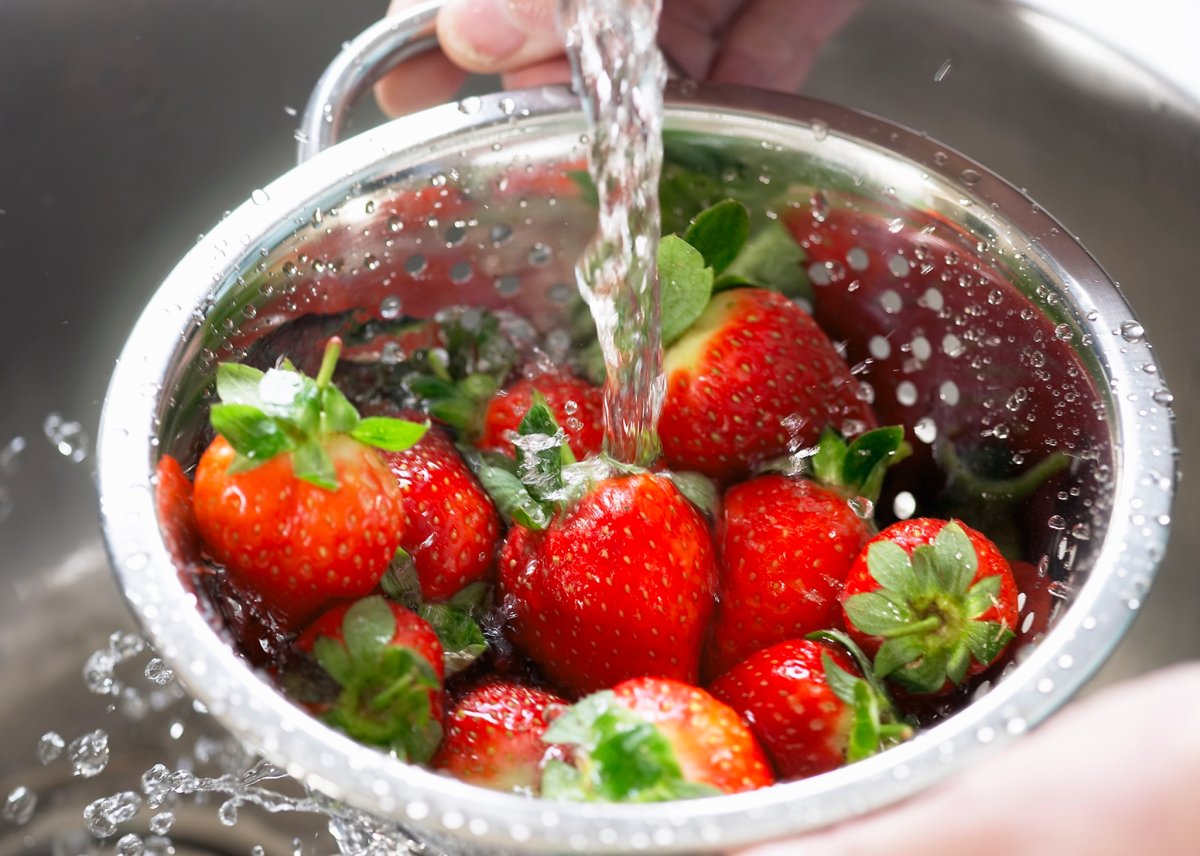Strawberries and celery sure do sound like healthy choices to munch on – but are you confident they’re free of pesticides?

If that has you questioning your choices, you may want to consult the Environmental Working Group’s (EWG) fourth annual Dirty Dozen and Clean 15 list – a list revealing the produce with the highest loads of pesticide residue, and the least, respectively.
READ MORE: Nearly 30% of food products contain residue of pesticide glyphosate: CFIA report
And for the third year in a row, strawberries take the top spot as the produce with the most pesticides with 22 residues detected. This is followed by spinach (which tested positive for high concentrations of the neurotoxic insecticide permethrin) and nectarines.
“Many shoppers don’t realize that pesticide residues are common on conventionally grown produce – even after it is carefully washed or peeled,” Sonya Lunder, senior analyst at EWG, wrote in a statement. “EWG’s analysis of tests by the U.S. Department of Agriculture (USDA) found that nearly 70 per cent of samples of conventionally grown produce were contaminated with pesticide residues.”
The three foods which tested with the lowest amount of pesticide residue include avocados (with only one pesticide found on any of the 360 samples tested), sweet corn (with less than two per cent of samples with detected residue) and pineapples (with only five different pesticides detected from a sample of over 250 pineapples).

Get weekly health news
The list this year included 47 popular fruits and vegetables, and over 38,800 samples taken by the USDA and the Food and Drug Administration.
To see the full list, click here.
So what do registered dietitians have to say on the report?
READ MORE: 2 widely used pesticides toxic to songbirds: research
For registered dietitian Andy De Santis, it could be a helpful list to consult, but it shouldn’t deter healthy eating.
“From where I stand right now, I think it’s very hard to say the risk of pesticide exposure outweighs the vast benefits of varied and frequent fruit and vegetable consumption,” he says. “If, as an individual consumer, you are concerned about pesticides in your food, by all means use this list as a guide but do not let it heavily deter or greatly restrict your fruit and vegetable intake. These foods are the most important parts of a healthy diet.”
The Alliance for Food and Farming agrees with De Santis’ claims, and notes farmers take great strides to protect the foods they grow.
“For over two decades the authors of this list have inaccurately disparaged healthy and safe fruits and veggies to the detriment of consumers,” says Teresa Thorne, Executive Director of the Alliance for Food and Farming in a statement. “Since a farmer’s first consumer is his or her own family, providing safe and wholesome food is always their priority. Consumers should be reassured by the farmers’ commitment to food safety and government reports that verify that safety year after year.”
You should also remember that just because a label says “organic,” it doesn’t necessarily mean it’s free of synthetic pesticides.
“Chemical sprays from nearby farms can drift onto nearby organic farms,” registered dietitian Nicole Osinga notes. “Make sure you rinse and scrub your produce – organic or non-organic – with a brush under tap water. This will significantly reduce the amount of pesticides that may be on them.”
According to the government of Canada, pesticides are strictly regulated in Canada.
Health Canada does not register pesticides that are known to cause cancer or other illnesses and will only register products known not to harm human health or the environment.
However, it is important to note that pesticides are toxic to people and pets and can cause injury like burns and poisoning if they’re not used properly.











Comments